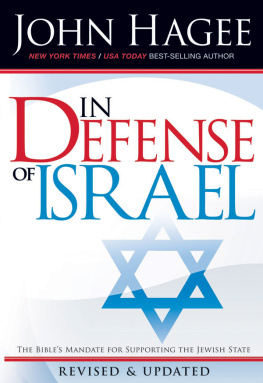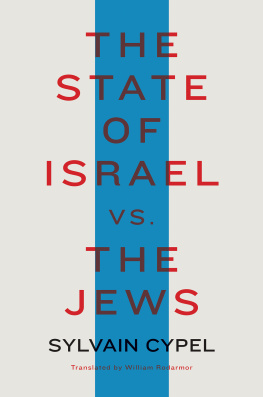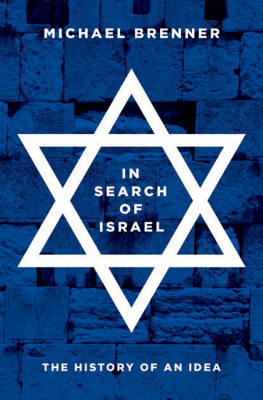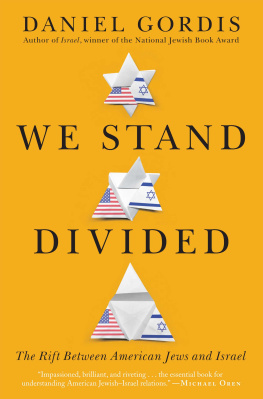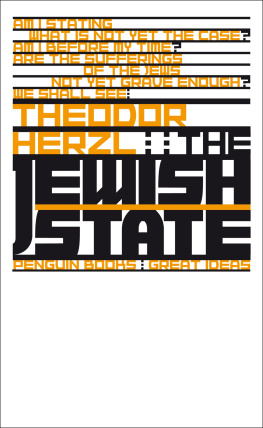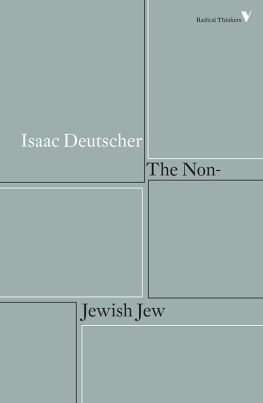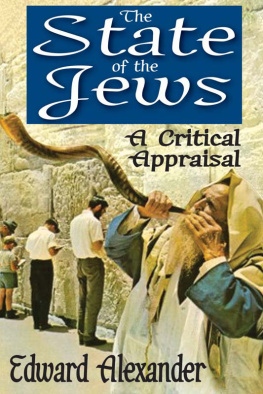Thank you for downloading this Simon & Schuster eBook.
Join our mailing list and get updates on new releases, deals, bonus content and other great books from Simon & Schuster.
C LICK H ERE T O S IGN U P
or visit us online to sign up at
eBookNews.SimonandSchuster.com
We hope you enjoyed reading this Simon & Schuster eBook.
Join our mailing list and get updates on new releases, deals, bonus content and other great books from Simon & Schuster.
C LICK H ERE T O S IGN U P
or visit us online to sign up at
eBookNews.SimonandSchuster.com

Simon & Schuster
1230 Avenue of the Americas
New York, NY 10020
www.SimonandSchuster.com
Copyright 2014 by Richard Cohen
All rights reserved, including the right to reproduce this book or portions thereof in any form whatsoever. For information, address Simon & Schuster Subsidiary Rights Department, 1230 Avenue of the Americas, New York, NY 10020.
First Simon & Schuster hardcover edition September 2014
SIMON & SCHUSTER and colophon are registered trademarks of Simon & Schuster, Inc.
The Simon & Schuster Speakers Bureau can bring authors to your live event. For more information or to book an event, contact the Simon & Schuster Speakers Bureau at 1-866-248-3049 or visit our website at www.simonspeakers.com.
Interior design by Aline Pace
Jacket design by Henry Sene Yee
Library of Congress Cataloging-in-Publication Data is available.
ISBN 978-1-4165-7568-9
ISBN 978-1-4165-8427-8 (ebook)
Dedicated to the memory of Mona Riklis Ackerman
Born Tel Aviv May 22, 1946
Died New York, December 5, 2012
She loved Israel. She loved being Jewish
Contents
The Great Mistake
T he greatest mistake Israel could make at the moment is to forget that Israel itself is a mistake.
That sentence, tossed off under deadline pressure, was the lede to a column I wrote for the Washington Post in the summer of 2006. Israel was then involved in yet another of its inconclusive miniwars, this one with Hezbollah to the north. Three years later, it would turn on Hamas to the south, pummeling Gaza, and then do it again in 2012, albeit stopping short of a ground invasion. As always, Israel applied its acknowledged doctrine of disproportionate force, using airpower, with its inevitable loss of civilian life.
The world looked on in horroryet it had looked the other way when the frequent wayward rocket, fired from Lebanon or Gaza, wobbled over the border and killed the occasional Israeli. Few looked, either, at the nighttime ritual of Israeli parents attempting to comfort frightened children in whose imaginations the odds of being struck by a homemade rocket went from near astronomical to dead certainty. If the siren went off, if the blimp hovering over the woebegone town of Sderot in the south detected an incoming rocket, a resident then had only about thirty seconds to make it to a shelter. This is a heart-pounding dash for a young person. For the elderly, its a near impossibility.
Israel was an honest mistake, I wrote, a well-intentioned mistake, a mistake for which no one is culpable, but the idea of creating a nation of Jews in an area of Arab Muslims (and some Christians) has produced a century of warfare and terrorism of the sort we are seeing now. Israel fights Hezbollah in the north and Hamas in the south, but its most formidable enemy is history itself.
The word mistake was itself a mistake. Yet I could find no other that expressed what I meant: not fault, not wrong, not evil, not awful, but, yes, a mistake: a belief that somehow the Arab Middle East would politely make way for European Jews, that an oasis of white Europeans could be established in a vast desert of Arabs, that a bit of colonialismnever mind that there was no home countrycould endure despite being something of an anachronism, a dinosaur hatched way too late.
There was an instant reaction to what I had written. Even in the prosaic black-and-white type of a newspaper, the word mistake had a Day-Glo quality to it. It blinded, it dazzled. On the internet, it seemed incendiary. It provoked sane people to write insane emails, and for months afterward, kind people, using the tone of voice reserved for children or the mentally feeble, asked if I had indeed written what they had heard I had writtenI am read, apparently, via rumorand if so, it was just plain a pity. I had, it seemed, gone nuts.
At the same time, a disquieting sort of applause came my way. Needless to say, the odd anti-Semite checked in via email, making the usual whacko references to Jewish power and Jewish wealth and Jewish malevolence. This sort of stuff is easy to dismiss because it is so loony.
More troublinginfinitely more troublingwere the congratulations I received from friends, colleagues, and acquaintances who you would have thoughtthat is, I would have thoughtwere either supportive of Israel or, at the least, not hostile to it. But what oozed out, what was suggested or inferred or implied, was that they had finally met a Jew who acknowledged the truth about Israel. They exhibited relief, since they must sometimes wonder about an innate, hopefully imperceptible, feeling about Jewsnot, of course, anti-Semitism, thats for sure, but a something, a feeling, a suspicion that worried them plenty.
For the fact of the matteror rather, the feeling of the matterwas that Israel had been acting so Jewish . No longer was it a Paul Newman-ish place, a land of blue-eyed Jews in inverted sailor caps who were always the underdogs, but a place of arrogant, pushy, smart, and duplicitous people. They had made the metaphorical leap from renters to landlords. They were turning down the heat on the Palestinians, replacing 100-watt hallway bulbs with 60s and then 40s, squeezing the hapless and innocent Arab, diminishing his standard of living and fueling the cycle of violence that erupts with biblical regularitya time for peace and a time for war.
Security concerns, always an excuse for the inexcusable, became the standard, all-purpose rebuttal. Did the world appreciate Israels situation? Did it understand the sort of neighborhood Israel lived in? Did the world understand what had to be done? Did the world even give a damn? The world offered criticisms. Many Jews heard something else: anti-Semitism.
Israel seemed both to care about world opinion and not to care about world opinion. It seemed suffused with self-righteousness; so stoked on a distant victimization that it could not see what others were seeing: the victim had become the bully. It had been years since the cruel-but-necessary had been necessary at all. It seemed rather that the West Bank roadblocks were often arbitrary, imposed because they could be imposed. Israel had become not just the Jewish State, but a very Jewish state, irritatingly sanctimonious, querulous, and justifying it all with invocations to the past.
But these critics were constrained from being openly critical. Impatience with Israel might seem like anti-Zionism, which might seem like anti-Semitism, which definitely would put the critic in pretty awful company. Israel was always the odd man out, the exception to the rule. It could not be discussed as, say, France could be, and criticized for what it did without convening a posse and beating the bushes for an ulterior motive: anti-Semitism, pro-Arabismsomething like that.

I agreed with much of this criticism. In countless columns over the years, I had condemned the Israeli occupation of the West Bank and Gaza Strip. I had been to both areas, as well as elsewhere in the Arab world, and I had written over and over again that by becoming an occupying power, Israel had lost its moral monopoly. Its Arab enemies might be dictatorships or monarchies, and the various Palestinian organizations might be corrupt and astonishingly violent (the 1972 Munich massacre of eleven Israeli Olympic athletes, for instance), but not only had they achieved underdog status, they had achieved it retroactively. Even the 1948 War of Independence, in which the newly created State of Israel was attacked by five Arab nations, was recast as a virtual sucker puncha cakewalk in which a modern, muscular, coldly efficient army easily dispatched an inchoate and pitifully thin invasion force. The Jews won because they were always going to winor, as some would have it, because Jews always manage to win.
Next page



